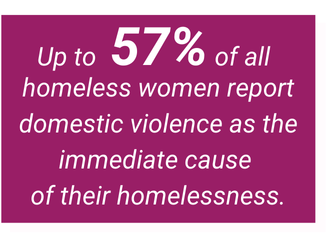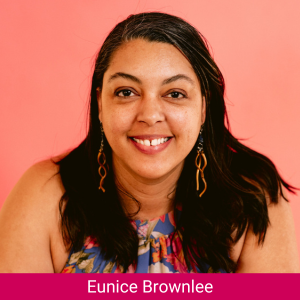
A Survivor’s Story Sheds Light on Needed Housing Protections
Victim-Survivors Deserve Housing Stability
Housing protections can help with the financial fallout of gender-based violence
Content Warning: This blog story contains descriptions of gender-based violence, child abuse, and trauma.
As Colorado seeks solutions for the significant increase in homelessness its experienced in recent years, housing protections for victim-survivors of gender-based violence must be part of the conversation.  Domestic violence, a subset of gender-based violence, is among the leading causes of homelessness nationally for women. It is often concurrent with financial abuse or economic coercion. As a result, renters who experience GBV may fall behind on rent and struggle to access credit. The economic consequences can torment a survivor for years – even long after they may have escaped the abuse.
Domestic violence, a subset of gender-based violence, is among the leading causes of homelessness nationally for women. It is often concurrent with financial abuse or economic coercion. As a result, renters who experience GBV may fall behind on rent and struggle to access credit. The economic consequences can torment a survivor for years – even long after they may have escaped the abuse.
Eunice Brownlee, a survivor, knows this narrative too well. She is sharing the financial fallout of gender-based violence she experienced to advocate for the House Bill 25-1168 – Housing Protections for Victim-Survivors of Gender-Based Violence.
“I didn’t ask for this situation,” she said. “There’s nothing more that I would have liked than to pay my lease. Survivors need more security than I had, and this bill will provide it.”
HB25-1168 would expand options for victim-survivors to replay late rent
HB25-1168 is one of The Women’s Foundation of Colorado’s policy priorities in the 2025 legislative session. When our President and CEO Renee Ferrufino testified in support of HB25-1168 in front of the House Committee on Transportation, Housing, & Local Government, we connected with Eunice. HB25-1168 would:
- Protect a victim-survivor’s investment in a security deposit from damage that is caused by an abuser
- Provide 30 days – increased from 10 days – for a victim-survivor to secure new housing and move following an eviction order
- Expand options for victim-survivors to repay late rent to avoid an eviction
- Guarantee victim-survivors the ability to make reasonable safety adjustments to their unit, including changing the locks changed when needed

Eunice is an activist, accomplished professional speaker, and certified speaking coach through WomanSpeak, “feminine-rooted Toastmasters, if you will.” In addition to using the platform to share her own story, she helps many survivors share their stories, too. Through WomanSpeak, she learned her experience was not unique and the economic devastation of gender-based violence isn’t discussed enough.
Her fear amplified with threat of eviction
“I don’t know a single custodial parent that isn’t struggling economically in some way if they are also dealing with abuse,” said Eunice.
Although her daughter’s father never hit Eunice, he used coercive control, which Eunice describes as “the dark and silent killer of domestic violence and abuse.” Her situation included post-separation abuse through the forms of litigation, court abuse, harassment, and refusing to help with housing for his daughter. Over time, the abuse worsened when he became physically violent toward her daughter.
“The physical abuse toward her was teaching me that he was in control and that he was going to do things his way. He knew how much I loved my kid – and so her being hurt would hurt me more than if he was hurting me directly.”
Because Eunice received no financial support and was going into debt from litigation, she couldn’t make ends meet and started to fall behind on her rent. The lack of safety she felt for her daughter and herself heightened with the added fear of eviction.
Having a home is a basic human need
“Having a home is a basic human need,” she said. “You walk up and see a notice on your door and you’re like, oh my gosh, is this the day? Then you realize it’s just a notice for scheduled cleaning or whatever, but you have a full-trauma response. That’s just part of the abuse – you always on high-alert, everything’s a threat, everything is existential.
Those opposed to the bill argue that expanding options to repay lent rent will hurt property owners. Eunice refutes that idea. Based on her own experience, the property owner was typically willing to work with Eunice on late payments, and they had a manageable repayment plan in place.
“I kind of call bull that these small landlords are losing out and that they don’t have that much margin,” she said. “Mine was willing to work with me for 11 years. It didn’t put her out of business.”
Housing protections would also include reasonable safety adjustments
While the property owner accommodated Eunice, the property manager refused to install a camera to document the harassment she experienced or change the locks when she requested it. To ensure their safety, Eunice had no choice but to change the locks herself and then change them back when she knew the property manager needed to enter her unit. If a camera had been installed, she would have been able to submit evidence of the harassment she experienced and file criminal charges as well.
Unfortunately, moving is very rarely an option for victim-survivors even if they live in an unsafe situation. Breaking a lease is costly, coming up with a down payment is costly, and waitlists for affordable housing in Colorado are long and units disappear fast.
“I can’t buy a house because my credit sucks because of all the financial abuse, so renting is where it’s at,” said Eunice. “But because of all the challenges I’ve had, it makes me not a qualifiable lessee. It’s harder for me to find a place to live,” said Eunice.
“Survivors need more security than I had”
While Eunice’s daughter is almost 19 and renting her own apartment, Eunice is counting down the days until the impacts of this situation have cleared. More than anything, she is proud that her daughter is doing well and recently started nursing school.
Eunice will continue to use her voice and experience to advocate for better housing protections for survivors, such as HB25-1168.
“I can’t stress enough how having this basic need met makes everything else in your life more secure,” said Eunice. “If I’m not always worried about where I have to live, I can focus on other things.”
To help Eunice and The Women’s Foundation of Colorado advocate for HB25-1168, use this form to contact your state Senator before Monday, March 31, when it will be heard in the Senate Judiciary committee.

